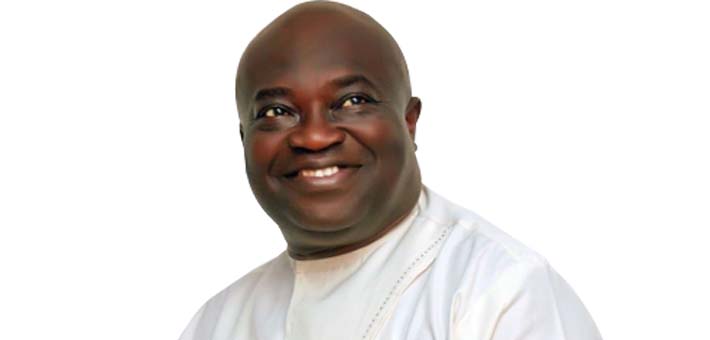Abia State Governor Okezie Ikpeazu has declared that he does not know the whereabouts of the leader of Indigenous People of Biafra Nnamdi Kanu who is scheduled to appear in court tomorrow for his case but he has not been seen since September 24 when military men entered his compound in Afaraukwu, Umuahia.
Speaking to reporters in Abuja over the weekend, Ikpeazu said: “I don’t think that is a fair question. I don’t have the capacity to determine where Kanu is. I have never visited him. I have never called him on phone and he has never taken me into confidence as to what he does, where he goes. So, those who are close to him would answer. I don’t have the capacity to monitor him to know where he is, maybe journalists, through investigative journalism will know.”
He expressed concerns that some sections in the country cannot trust the Igbo in the South East to occupy certain strategic positions in the country.
According to him, this feeling of distrust was unfounded, stressing that the Igbo have sufficiently demonstrated love and faith in the corporate existence of Nigeria more than any other ethnic group.
Tracing the roots of the pervasive misgivings towards the South East to the civil war experiences, Ikpeazu said the Igbo have since put the nasty experiences behind them by registering their presence in every part of the country.
“The post-war experience is that everybody started receding and then we started moving everywhere. Then at the end of the day, our people are beginning to feel that we are not being trusted enough with certain strategic positions despite the fact that we have demonstrated in particular times that we love Nigeria more than anybody, we have faith in this country more than anybody,” the governor said.
Ikpeazu said the agitations are mainly fueled by inequalities and feelings of unfair treatments
The governor said, “Fundamentally speaking, I think that if the questions we ask in this country today are whether there are inequalities, there are gaps, there are people who don’t feel that they have been fairly treated, either as an individual or as a family or as a geopolitical zone, the answer is yes.
“There is agitation in the North East, there is an agitation in the South West and of course there is agitation in the South-South. But I dare say that there is no other ethnic group in this country that has as much faith in Nigeria as a country, one united country than the people of the South East.
“That is why they are in Sambisa. You can count how many big businesses belonging to the South Westerners that are in Aba. You can count how many big businesses belonging to the people from the North East, North West, North Central that you can find in Owerri. You cannot find a four-storey building belonging to somebody from the North East anywhere in the South East.
“But if you go to Kano, you don’t count three hotels before you count that of somebody from the South East. What it means is that we are the people that have demonstrated faith in a united Nigeria”.
He traced the creation of IPOB to bottled up discontents among a section of the youths in the Southeast.
Ikpeazu revealed that Igbo political and cultural leaders had to intervene at this point and that they engaged Kanu through the Ohanaeze and the South East governors.
This, according to him, was for the purposes of exploring alternative approach to the agitation through intellectual presentations with the view to confronting the Federal Government with sound arguments.“

